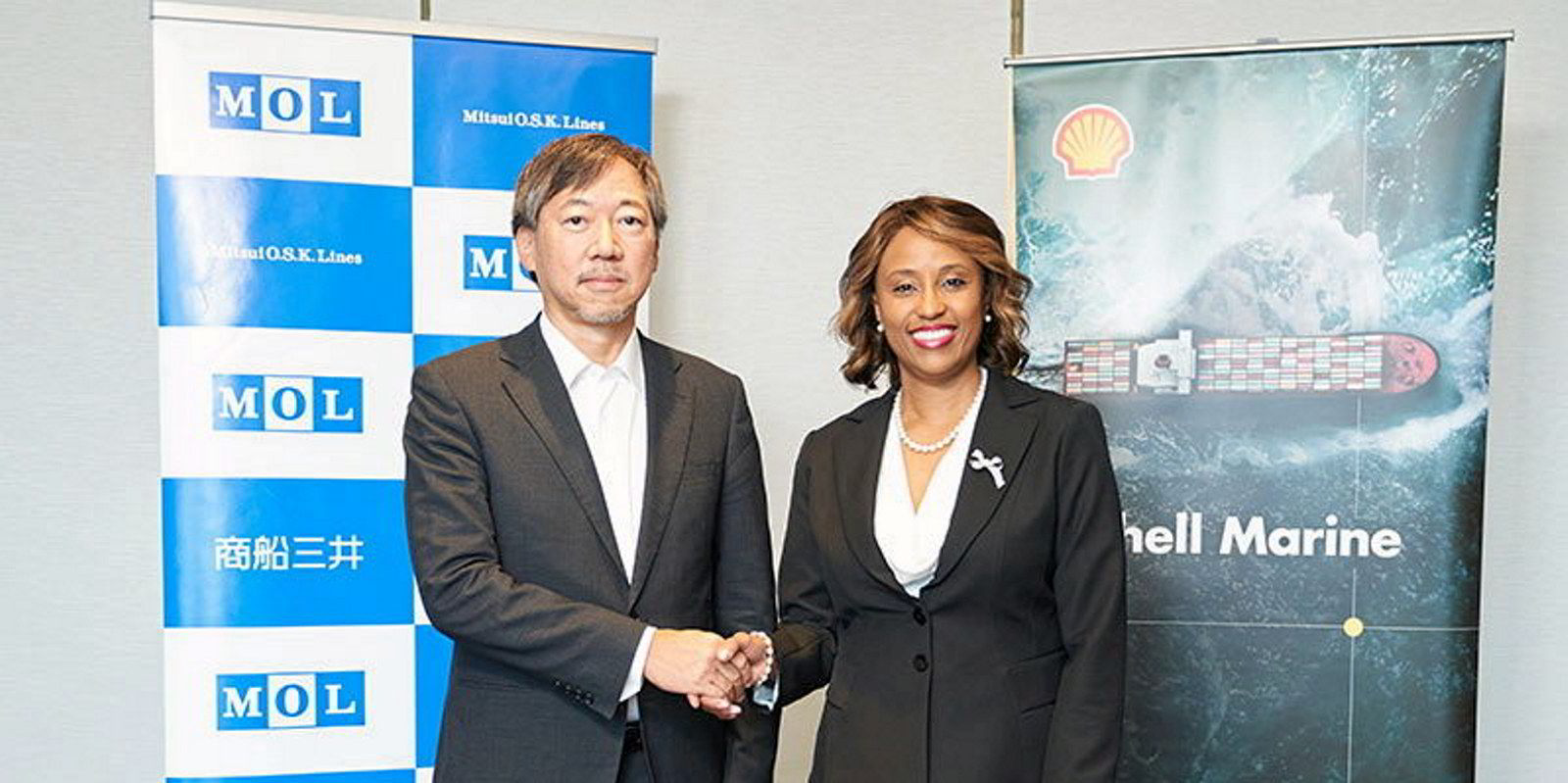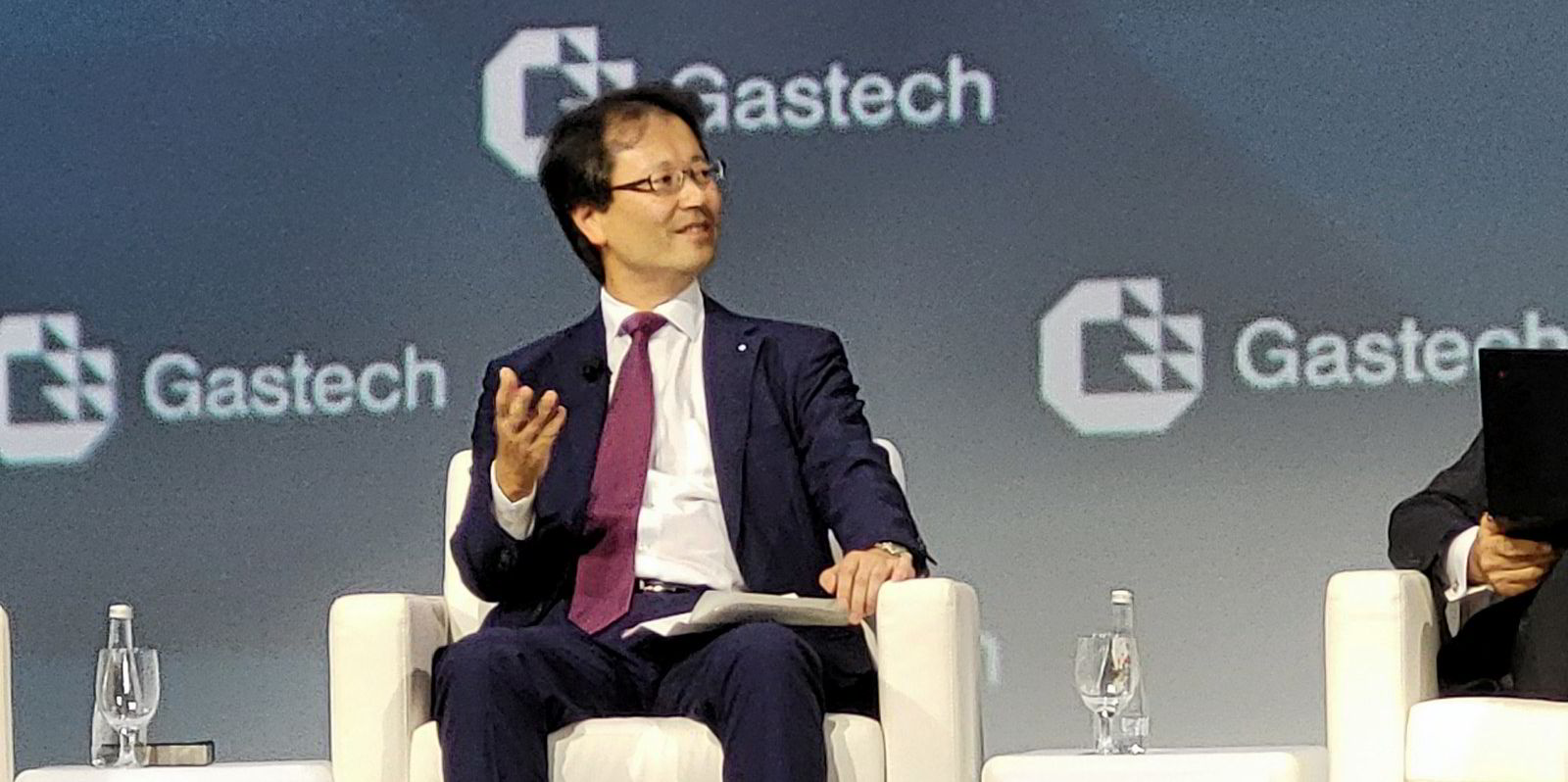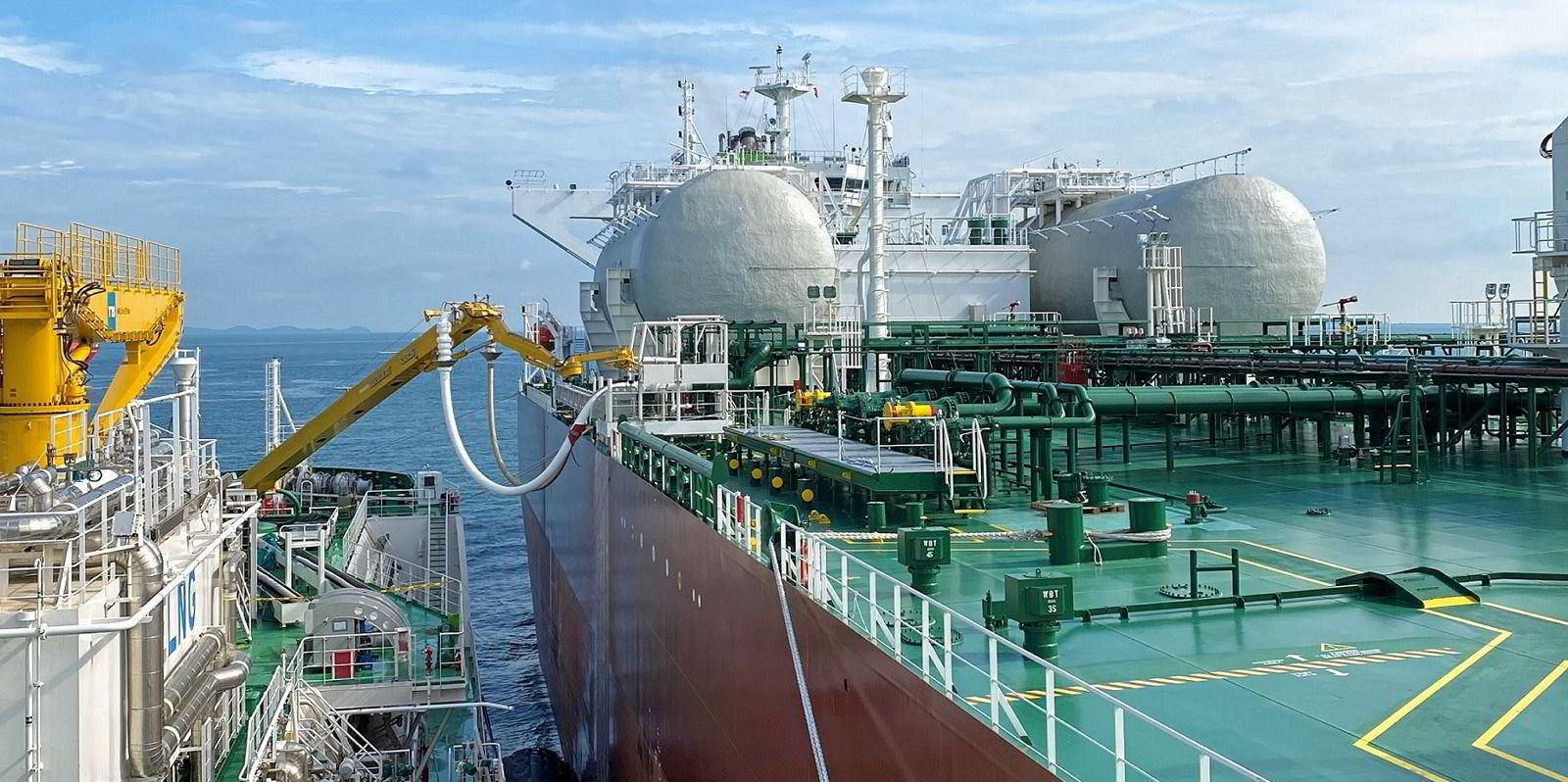Mitsui OSK Lines (MOL) has signed a collaboration agreement with Shell Marine Products Singapore to develop alternative fuels and manage carbon emissions.
The move is part of MOL’s Blue Action 2035 plan to reduce carbon emissions to net zero by 2050.
MOL said the move would play a “pivotal role” in achieving its decarbonisation ambitions.
The collaboration will involve exploring bio and synthetic fuel options.
Gauging the effectiveness of alternative fuels in the carbon trading markets will also form part of the tie-up.
“We believe this MOU [memorandum of understanding] will be an important step for both businesses to drive impactful change in the industry,” MOL executive officer Kazuhiro Takahashi said. “Choices of marine fuel will require a strategic decision, then collaboration with experienced and reliable partners is essential.”
Melissa Williams, president of Shell Marine, said: “We will focus on joint studies in understanding the impact from different regulatory environments as well as exploring possible pathways for the successful decarbonisation of the shipping industry.”
Earlier, MOL signed an agreement with Chevron Singapore to also develop marine fuels.
The moves come as Japanese classification society ClassNK released a forecast estimating that the shipping industry will require 100m tonnes of ammonia and methanol annually if it is to achieve the International Maritime Organization’s carbon emission reduction targets for 2030.
The IMO has set a target of reducing carbon emissions by at least 20% of its 2008 levels by 2030.
Norwegian classification society DNV’s recent energy forecast calculated that shipping will require 30% to 40% of global carbon-neutral fuel production to achieve the target.





